Published On 4 Dec 20234 Dec 2023
They may weigh a maximum of 500 grammes (one pound) and only grow to 10 centimetres (four inches), but the farming of giant snails is proving to be big business in the Ivory Coast.
Considered a delicacy for their tasty flesh, the giant snails are also used to make cosmetics manufactured from their slime and shells.
But nearly 90 percent of the West African country’s forests have disappeared over the last 60 years, something which, together with the widespread use of pesticides, has decimated wild snails’ natural habitat.
Most forest has been lost to agricultural production in the world’s top producer of cocoa – to the detriment of the creatures that naturally thrive in a hot, humid environment.
As wild snail numbers have steadily fallen, farms that specialise in breeding them have increasingly sprung up. There are some 1,500 in the humid south alone.
A popular appetiser in the Ivory Coast, the snails are bred on farms such as one of many in the town of Azaguie, some 40km (25 miles) north of the commercial capital, Abidjan.
Inside some 10 brick and cement containers topped with mesh lids is a layer of earth and another of leaves.
Between the two slither thousands of snails, juveniles and breeders – some much larger than those found in Europe.
The gastropods are watered and fed every two days.

Snail flesh, which is very popular in the Ivory Coast as well as in neighbouring Gulf of Guinea countries, is typically consumed with a spicy sauce or grilled on skewers. It's an affordable dish, often served in popular bars and restaurants called 'maquis'. [Issouf Sanogo/AFP]

Purists swear by the 'wild' snail captured in the forest, on the grounds, they say, of its tastier meat. But Bernus Bleu, founder and director of Ivory Coast Snail Expertise (CIEE), one of the largest companies producing, processing and marketing giant gastropods, rejects that view. [Issouf Sanogo/AFP]
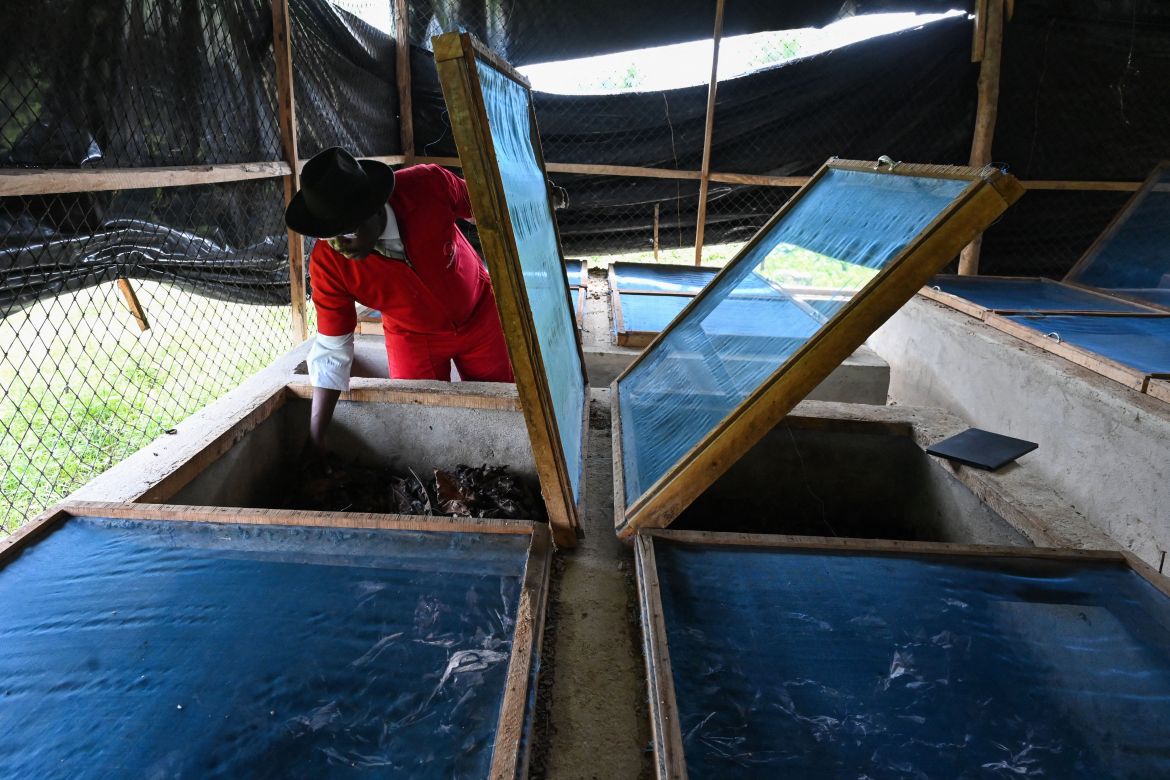
Bleu's company's catchphrase is 'same snail, same taste' - he insists there is no difference in taste between those that roam wild and the farmed variety. [Issouf Sanogo/AFP]

On the farms, growers 'reproduce the natural environment of rainforest snails and they only eat leaves, fruits, vegetables, corn, millet and soya', said Alexis Famy, CIEE technical coordinator, adding that 'no pesticides are used, it is entirely organic'. [Issouf Sanogo/AFP]
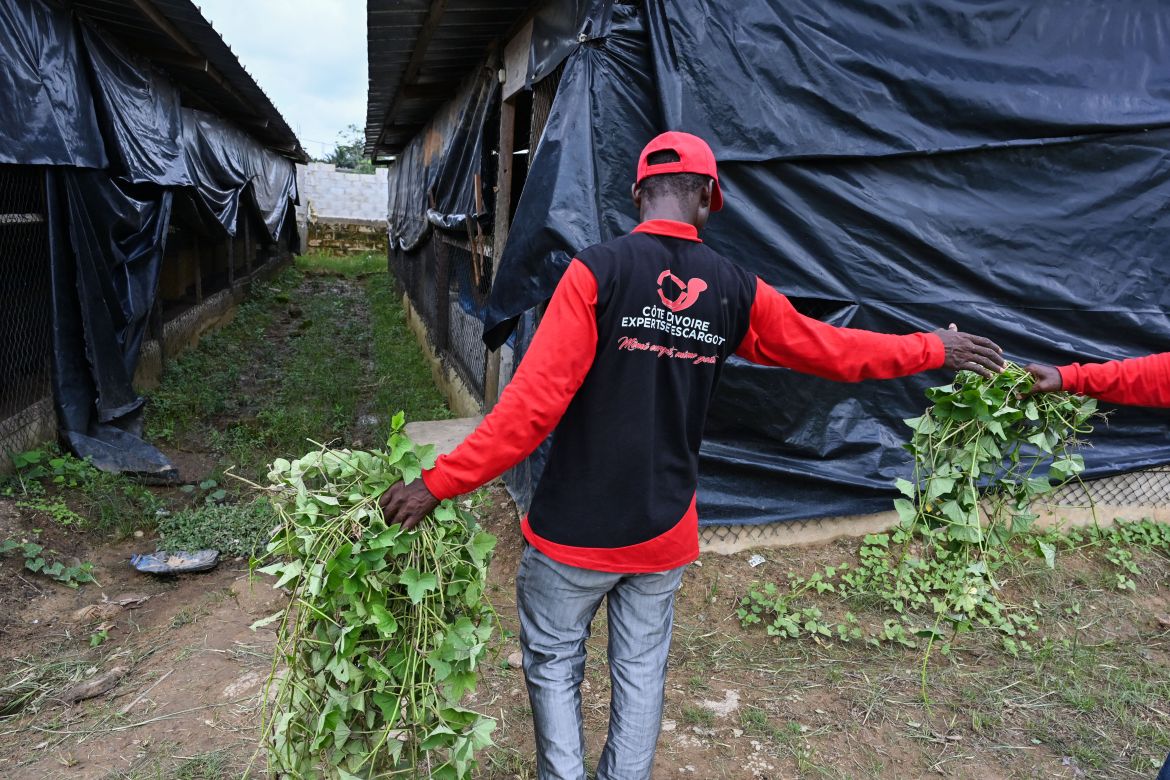
Created six years ago, CIEE has 50 farms and processing units, employs 75 staff, trains some 200 people per month and helps to get them established. [Issouf Sanogo/AFP]
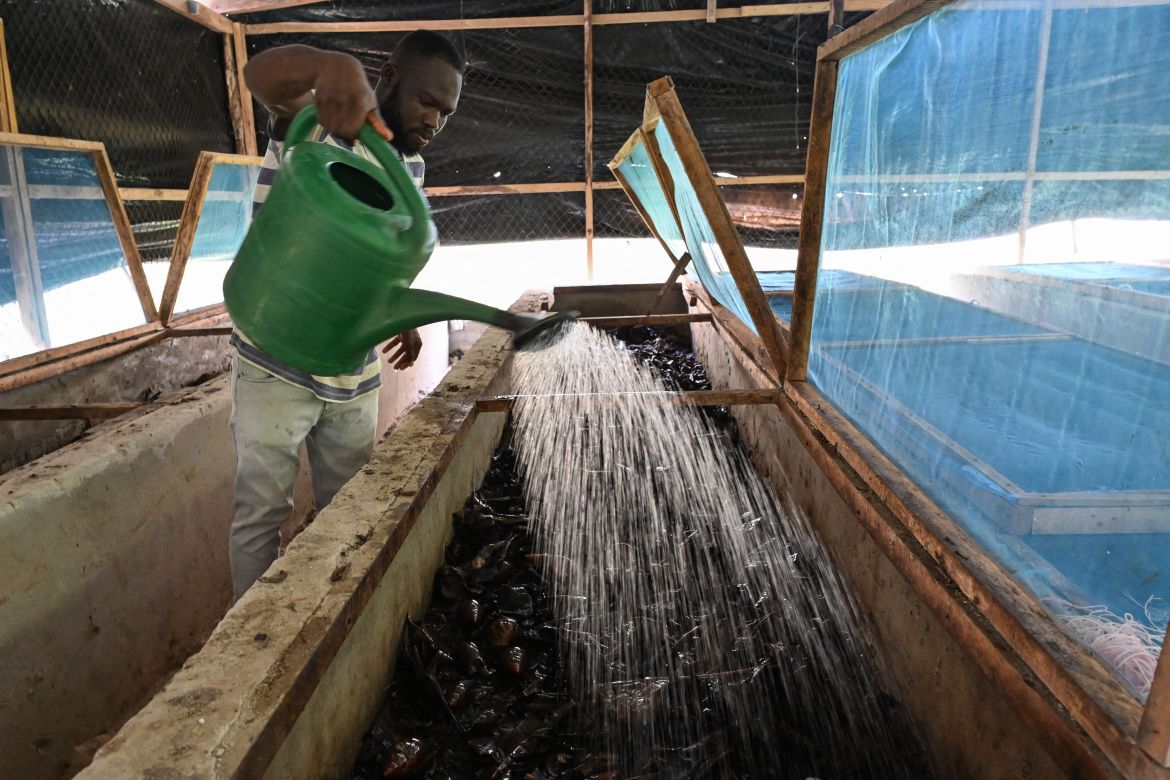
Most trainees go on to create their own livestock farms or join cooperatives with intra-company contracts. [Issouf Sanogo/AFP]

From around 25,000 farms currently, the sector aims to increase the number of producers to 100,000 in the next few years. 'With the snail, nothing gets thrown away,' said Bleu. [Issouf Sanogo/AFP]

Jean-Norbert Akesse, a former trader in the Abidjan suburbs who manages one of around 30 Azaguie farms, opened the site in 2021 and has no regrets. 'It's profitable!' he said with a smile, explaining how, on completing his professional training, he invested two million CFA francs ($3,300) in the enterprise. [Issouf Sanogo/AFP]

Today, the farm brings in 12 million CFA francs ($20,000) per year, a more than comfortable income in the Ivory Coast, where the minimum wage is 75,000 CFA francs per month (barely $125). Akesse sells his entire production exclusively to CIEE. [Issouf Sanogo/AFP]

The snails' slime is used to make soap, shower gel and ointment, while the powdered shells are used in the manufacture of other cosmetics or animal feed. [Issouf Sanogo/AFP]
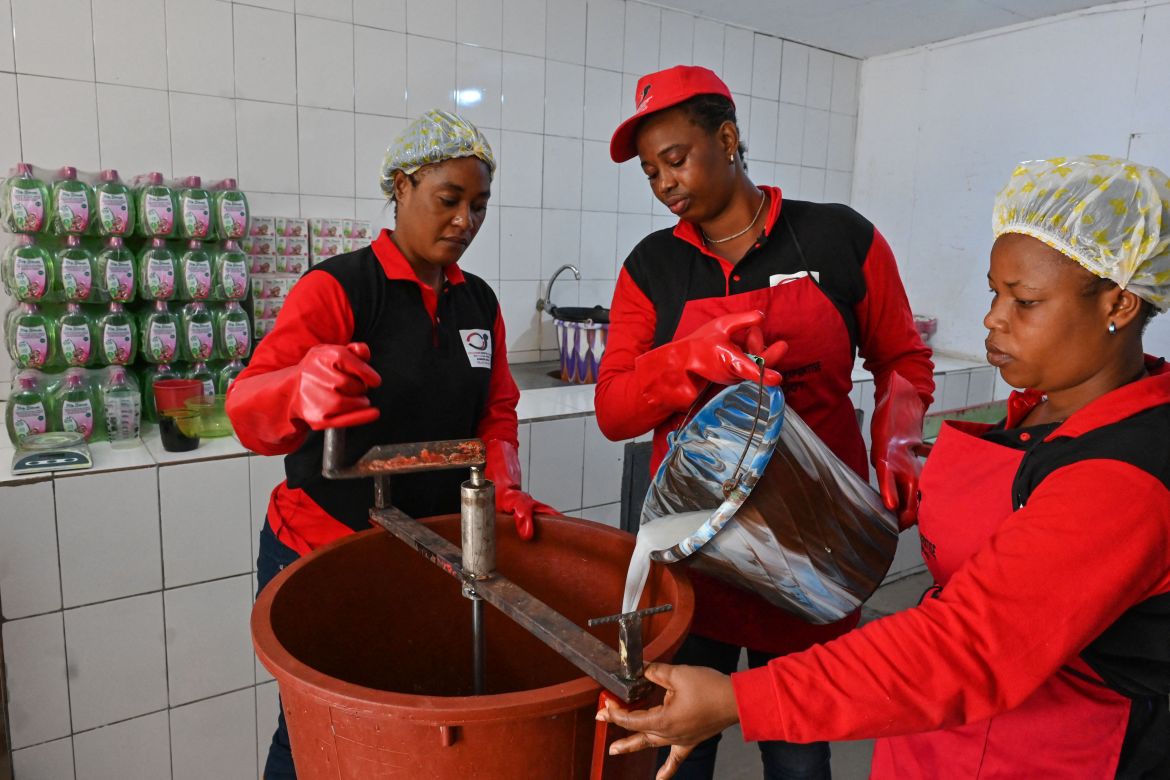
At the CIEE's headquarters in Azaguie, women make soap and shower gel from snail slime, mixed with coconut oil, green colouring and perfume. [Issouf Sanogo/AFP]
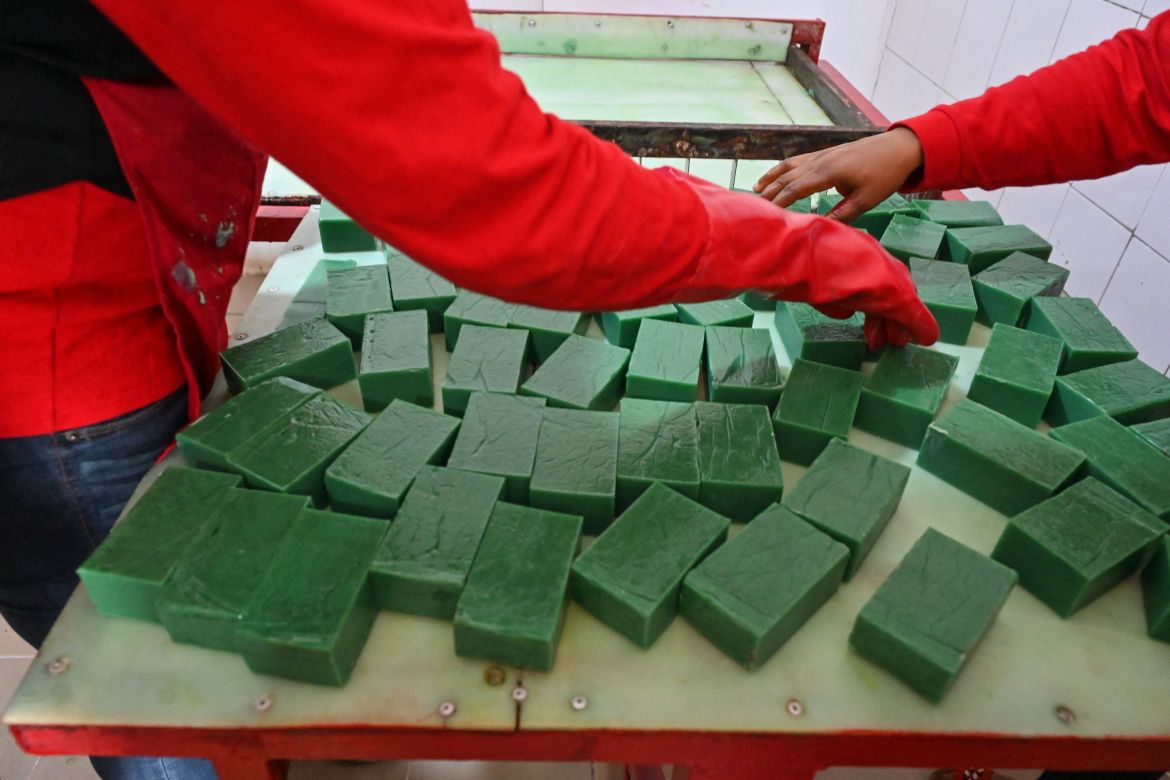
On average, the small, rudimentarily equipped workshop produces some 5,000 soaps and 5,000 bottles of gel each week. [Issouf Sanogo/AFP]
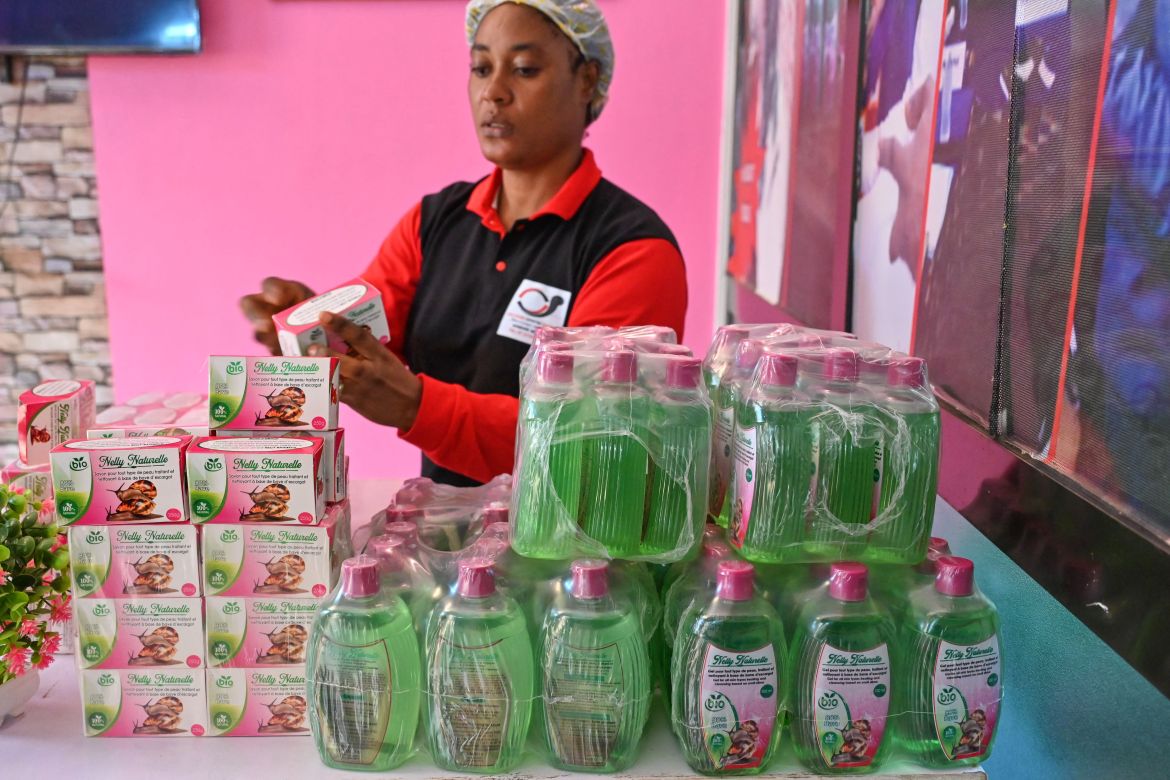
'Snail slime hydrates the skin, removes impurities and prevents its ageing,' workshop supervisor Nelly Blon said. [Issouf Sanogo/AFP]
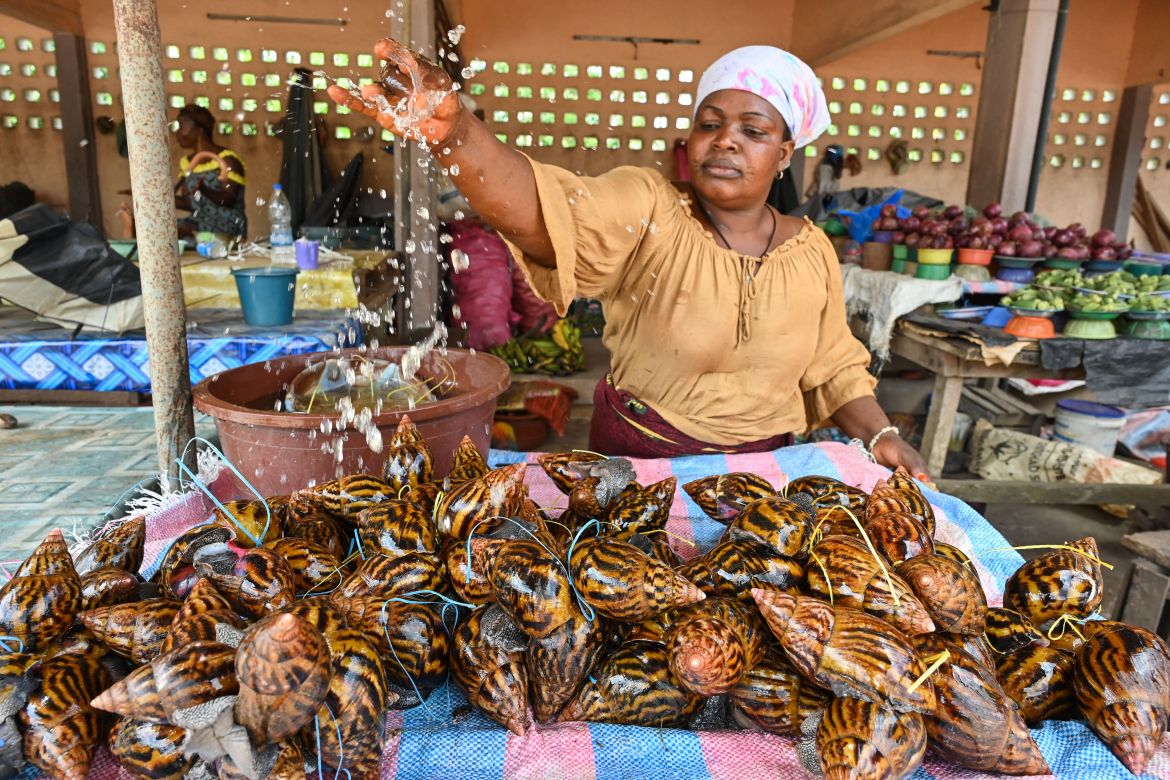














 Movie
Movie 5 months ago
135
5 months ago
135 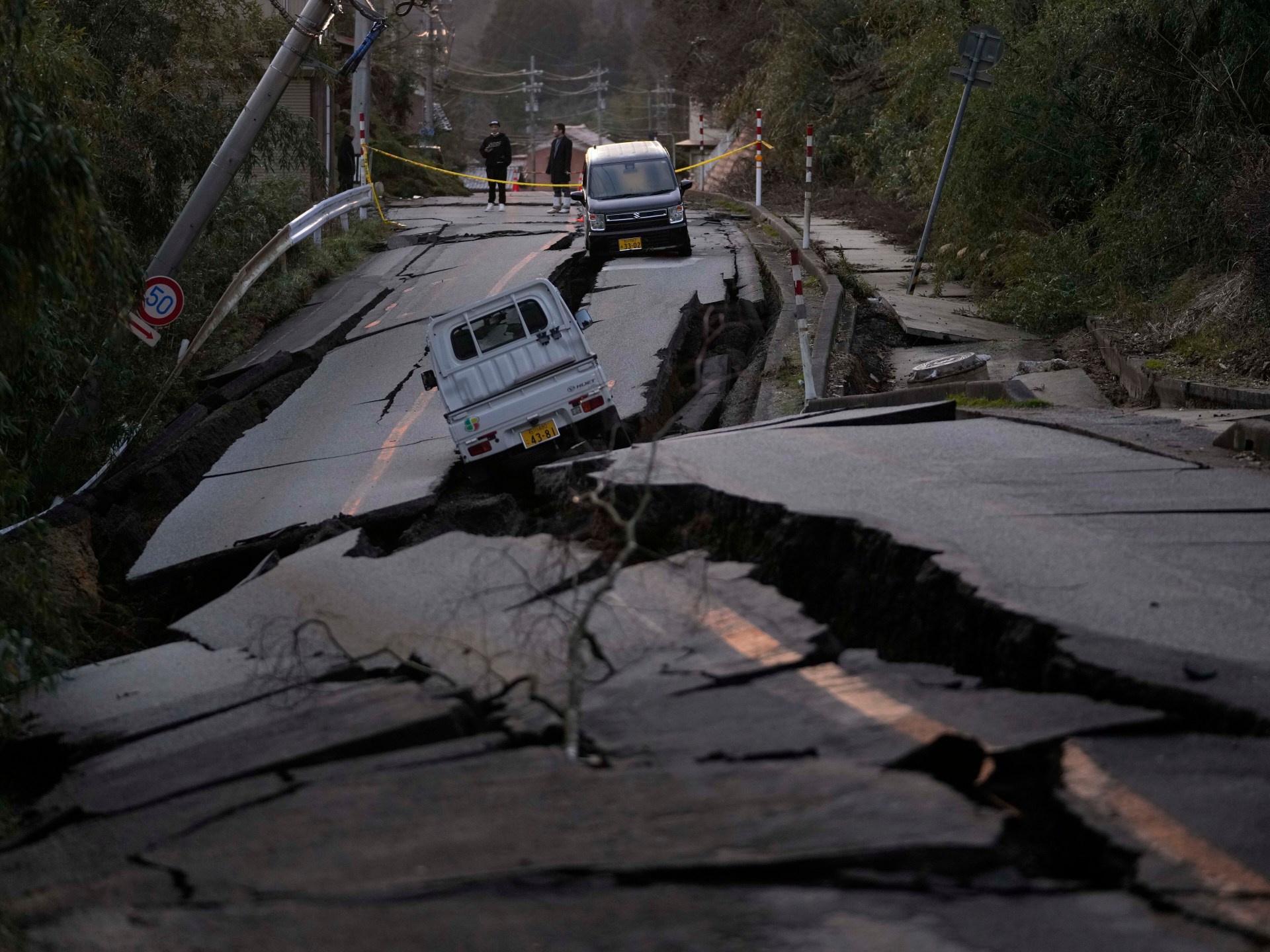






![Presidents Day Weekend Car Sales [2021 Edition] Presidents Day Weekend Car Sales [2021 Edition]](https://www.findthebestcarprice.com/wp-content/uploads/Presidents-Day-Weekend-car-sales.jpg)



 English (United States)
English (United States)